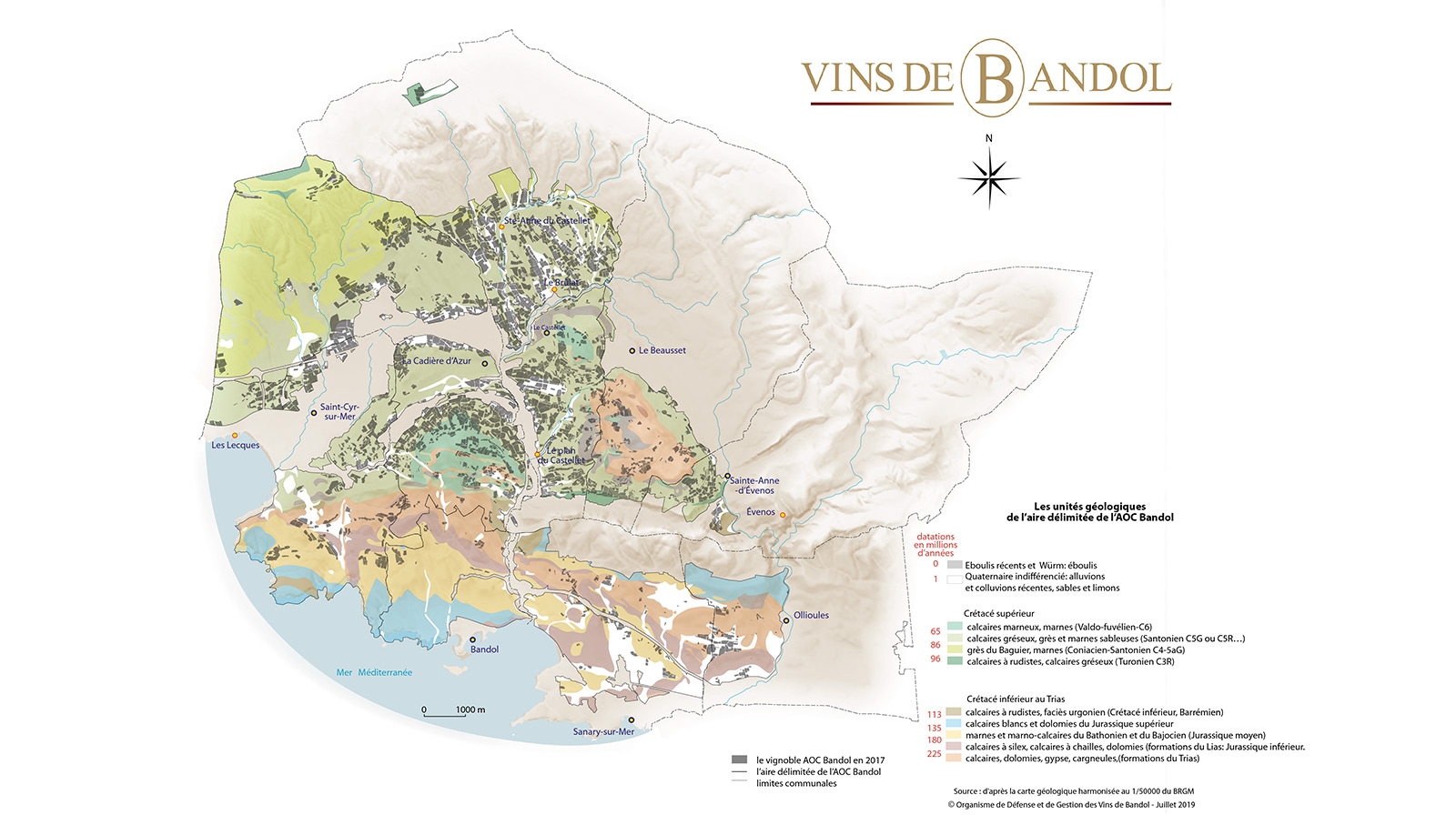Rudist limestone wines
While working on my latest map of Bandol, I came across multiple references throughout the appellation to Calcaires à Rudistes. Vineyard soil is a fascinating topic, insofar as it can seriously influence the resulting wine - although in this case, calcareous rudists relates mostly to the underlying rock rather than the topsoil itself.
Of the handful of estates on this unique terroir, only a small subset even include any mention of it in their communication. The few that do include the rather famous Domaine Tempier, and the slightly less famous Moulin de la Roque, who make both a white and a red on rudist limestone.

Devastatingly, Maltman's Vineyards, Rocks, & Soils says nothing at all about rudists.
Many long googling hours later, and it would seem that rudists aren't particularly exciting. They're large shellfish, bivalves that lived millions of years ago in the Cretaceous, forming large reefs that did better in warm waters than corals. Apparently their fossilised remains are quite porous and are great for oil deposits.
The kind found in Bandol seem to be found throughout the northern Mediterranean, following a long arc that hugs the coastline, all the way through southern Italy, into the eastern Med, and apparently even into southern Iraq. There are only a few rudist outcrops however, with much of the limestone deep into the folds of the earth or already eroded away. Some of these outcrops do actually coincide with known viticultural areas - Bandol for one, small bits of La Clape in the Languedoc, and even Saint Gervais in the Rhone valley.
I haven't found any estates in Italy Turkey that grow grapes on rudist limestone, but they might exist and simply not make a big thing of it. How many estates talk about 'limestone soils' without expanding on what sort of limestone it is or what sort of mollusc are the fossils they have found. In fact, what is most surprising is how much Bandol is proud of, and communicates about, its rudist limestone heritage, when so litle is said by elsewhere on those same things. Is one of them talking about something irrelevant, or have the others simply missed a trick? Does it matter at all what rudist limestone actually means?
According to winemakers, rudist limestones are a fantastic terroir on which to grow Mourvedre. To be perfectly honest, I'm not convinced they are any better than other fossil-rich limestone soil anywhere else - but the story is fantastic, and it's wonderful to see such varied wine regions tied together by something as forgettable as a long-dead family of shellfish.